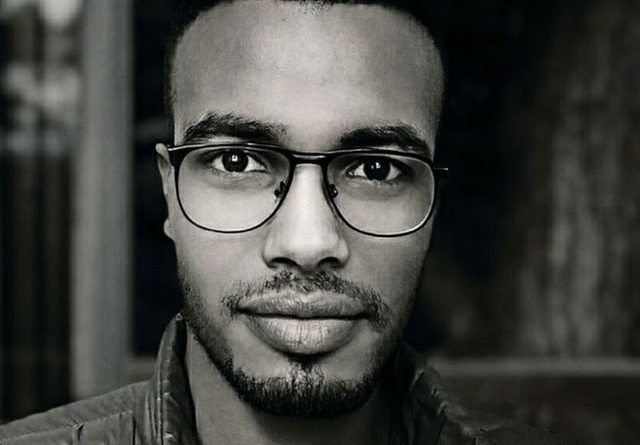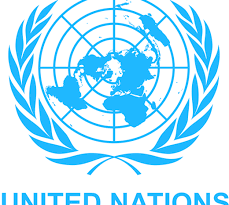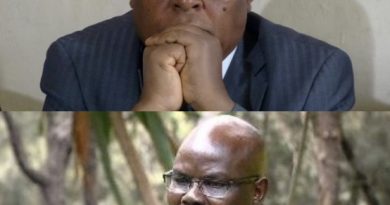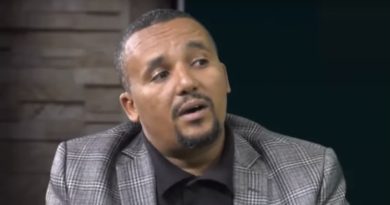OPINION: How can Citizens pursue Peace-building in Ethiopia?
By Geleta Tesfaye | Yeroo Columnist, Peace & security researcher
How Could Individual Citizens Participate in Positive Peacebuilding in Contemporary Ethiopia?
This opinion discusses ways in which individual citizens can engage in positive peacebuilding in contemporary Ethiopia. In the first part, the conflict setting of the country is analyzed; then, the essence of peace and the FDRE’s constitution institutional framework for peacebuilding in Ethiopia are analyzed to set a frame for individuals participating in the process. The contribution of every citizen, especially the youth and the elders are emphasized. Individual citizens can engage in the peace-building process in Ethiopia through the transformation of their self which can be actualized through self-awareness; which in turn gradually result in cultivating the culture of national dialogue and the broadening of the public sphere across languages and cultures.
Peace-building initiatives and solutions require an appropriate understanding of their conflict settings. Ethiopia’s current problems are complex and have several pre-1991 and post-1991 roots that are integrated and made the situation tough. These roots have historically implanted ethno-political and religious issues; and without addressing these deep-rooted grudges, it is impossible to address the current problems of Ethiopia.
First, the current conflicts in Ethiopia have a historical root in the country’s formation from the 14th to the late 19th century. Ethiopia, as most other states in the world, was formed through coercion, violence, and bloody wars. Albeit this nation-state formation has created a shared national identity between Ethiopia’s ethnic groups, it has left untreated strains and grievances. These strains and grievances are one of the major roots in the contemporary Ethiopian conflict.
Second, Ethiopia, until the era of the Dergue regime is one of the most religious nations in the world, the majority belonging to either Christian or Islam. Here, Religion and religious values are deeply embedded within social, cultural, and political life. Several historical writings have shown that religion has played a special role in Ethiopian history.
The 1974 political change presented the complete separation of state and religion and pronounces religious equality in the constitution. But the reality was far from it: The Derg government persecuted religious leaders and anyone who showed commitment to religion. After the downfall of the Derg in 1991, the new government of Ethiopia, the Ethiopian People’s Revolutionary Democratic Front (EPRDF) gave actual freedom of religion.
Under the administration of the EPRDF, a lot has been achieved from removing such an oppressive regime to giving freedom of religious practices and languages, and others. Still, it seems that the EPRDF has contributed to the contemporary Ethiopian conflict through its unbalanced creation of federalism along ethnic lines. Self-administration was a good idea; nevertheless, it should not be tolerated to the point it destroys a nation-state sense of communities and weakens the country by triggering and giving life to past scars without any help of recovery.
The 2016-2018 Ethiopian Civil strife had its root in the previous ruling party’s dispossession of land rights, the policy of expanding the land of Addis Ababa at the expenditure of the Oromo farmers, a territorial dispute between Amhara and Tigray regions, and widespread political repression. In April 2018, the smooth power transition has happened between former Prime Minister Hailemariam Desalegn and the current PM Abiy Ahmed, and that stopped the country which was at the edge of a civil war. Hope had swept the country from every corner as the new PM addressed love, forgiveness, and reconciliation. Though the power transition was peaceful and created hope, insecurity, tensions and ethnic conflicts continue and worsen the internal displacement (Faleg, 2019).
On November 3, 2020, the TPLF attacked the Country’s largest northern military command following disapproval of the ruling government’s disapproval of their election as Tigray’s government. Following the betrayal attack, the ruling party has declared a full-scale offensive against the TPLF.
The most important instrument employed in the effort of peacebuilding in Ethiopia is the FDRE Constitution of 1995. Beginning with the preamble, the constitution envisions its aspiration of peacebuilding in the country based on constitutional supremacy (Art. 9), respect to rule of law, rights to good governance, transparency and accountability of government officials (Art.11 and 12); human rights including the right to life, security of the person and liberty (Art. 14 to 17), right to equality or non-discrimination (Art. 25), dignity, honor and reputation as well as the right to personality development (Art.24 ), freedom of religion, belief and opinion; democratic and political rights (29-43), inter alia, freedom of opinion, thought and expression, rights and equality of the children and women, private ownership of property, the right to access to justice so far as one has justifiable claims, the right to self-rule, right to economic growth, development, environment, and others.
The principles of non-retroactivity, double jeopardy; freedom from torture, inhuman and degrading treatment, etc. are all foundational constitutional provisions for the effort of peacebuilding in Ethiopia. This constitutional framework can support individual citizens at all levels of society to engage in the peace-building process.
Most wars in the world develop from both individual and groups interests; in this manner, peace initiatives can start with an individual’s effort. An individual is not powerless, he or she can carry the responsibility to end violence and engage in peace-building. According to Putnam, the participation of individuals in civil life and groupings is termed civic engagement. While the state and other international peace-building organizations play a significant function, Individual citizens as a member of the civil society have important roles to play in peace-building.
To understand how individual citizens can engage in positive peace-building, it is essential to characterize what kind of individual citizens can engage in this process and who these individuals shall be. Nevertheless, if the above characterization is pursued as the requirement to engage in peace-building works, it would be difficult for individuals to engage except for a very little number of elites in the society. Instead, individual engagement for peace-building would be more effective by including individuals at all societal levels. These grassroots represent most of the population of the society with ordinary lives with low economical or educational status, especially when contrasted with individuals in other societal levels. In several cases, this level represents the larger picture of the societal reality, in particular, if the ethnoreligious conflict is central to the nature of the violence like contemporary Ethiopia.
Individual citizens at this level can be engaged in peace-building by involving in day-to-day efforts of peace-building or what is called everyday peace. This approach of peace-building has a better possibility of success than mainstream peace-building approaches. Individuals at this level can engage in positive peace-building through a bottom-up approach via different practices. Everyday peace practices like avoidance of controversial dialogues and offensive activities; showing politeness; and blaming outsiders instead of members of the society can be done by any individual with either a low or high degree of competency level.
Individual citizens in the middle societal level can vary from individuals in different governmental sectors such as education, agriculture, or health; Individuals from religious groups, academic institutions, or humanitarian organizations. The main feature of this group is that individual citizens are positioned in the mid-level hierarchy of institutions. Individual citizens in the elite level are leaders of different streams in higher positions of military, political, and religion.
Individual citizens in both levels need competencies like self-awareness, interpersonal communication, listening, intercultural communication, critical thinking, mediation, and negotiation skill. Individual citizens in mid-level can engage in peace-building with their position by advocating for peace and by preparing or facilitating “problem-solving workshops, conflict resolution pieces of training, and the development of peace commissions”, which can help the peace-building process as a preventive peace cause. Individual citizens in elite levels can engage in peace-building as “intermediaries or mediators”.
This approach of peace-building is needed after the violence has occurred, and individuals at this level can involve in the transformation process of violence to peace-building. It is possible to introduce particular groups of individual citizens from the society and learn how they can engage in peace-building.
One of the many shared values of Ethiopian ethnic culture is respecting Elders. Elders can play important roles in peace-building as individual citizens, by using traditional mechanisms, to engage in conflict management and peace-building processes.
Among these traditional mechanisms that convey Elders in the center are; Guurti system of the Somali regional state, the Seera Aadaa Oromoo of the Oromo people, Joburas of Agnuak, Mada of the Afar, Shimgilina, and Erqof the Amhara, and Seera and Kitcha of the Gurage are some of the examples.
Individual citizens from the youth group in contemporary Ethiopia can engage in peace-building through different approaches discussed above based on their competency level. They can engage in everyday peace causes, preventive peace causes, or transformative causes. However, it is not impossible to assume that not many individuals in youth groups are active in peace-building engagement. Depending on the above assumption, it is relevant to discuss how to increase youth engagement in peace-building.
It appears that the engagement of individual citizens for peace-building in Ethiopia logically necessitates incorporating peace education in the country’s education policy and practice for peace study to be given to students from their early childhood. Positive engagement of individual citizens for peace-building in Ethiopia should also consider issues of identity and diversity. In Ethiopia identity can unite or it can divide. It can bring people together around shared qualities or it can separate based on differences.
The way one thinks he/she is; how others perceive him/her to be and how a person perceives others view him/her are elements to construct one’s identity. Irrespective of our differences, however, there are greater aspects of identities common to all of us. Besides, such differences in language, sex, color, religion, nationality, culture, history, political views, geographic origins, etc., are mere differences and secondary identities for they are all fluid from time to time while our fundamental human essence which is our common identity and fixed till our death. These traditions on peace study change the culture of peace-building to be effective and self-sustaining across all sectors in this multi-cultural society that could not yet settle its nation-building project.
The Ethiopian plural society still has not reconciled itself with its past. Inter alia, historical questions, apart from crafting an algorithmic equation to safely and effectively accommodate the challenge of linguistic, cultural, economic, political, and constitutional questions are not a matter resolved yet. This is partly because of the absence of the culture of deliberation and a public sphere to have principled engagement toward the resolution of the questions. The deliberation is imperative to resolve the polarized polemic.
Since the reform question and process started in Ethiopia some 4 to 5 years back, Ethiopians have extra-judicially been killed, immigrated, fled, and crossed borders to claim refugee status elsewhere, and have been internally displaced to escape such violence and persecution. The war internally going on at present is going from the fire to the fire pan to the country. Millions are internally displaced and suffering for causes that are incommensurable altogether with tragic consequences.
Individual citizens’ commitment to positive peacebuilding in contemporary Ethiopia, the country’s conflict setting, the essence of peace, and how the FDRE’s constitution institutional frames the process, are all explored in the above analysis. The national challenge can be reversed as pointed out mainly through offering peace study to children/youth so that they would develop patterns of behaviors that are dictated by the principles of peace which should be people-centered, relationship-building, and participatory process approach at the grass-root level.
Such an approach would gradually result in cultivating the culture of national dialogue and the broadening of the public sphere across languages and cultures. This would in turn enable the individual citizens eventually to solve the long-standing cultural, structural, and direct violence. The study of peace thus would serve each Ethiopian national as a panacea focus on promoting peaceful coexistence and creating the psychological proclivity of resolving conflicts through open dialogue, genuine and constructive criticism dialogue again referred to by openness and whole-hearted.




